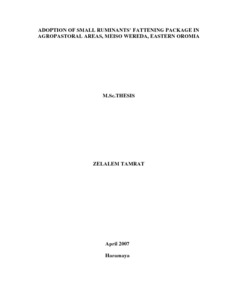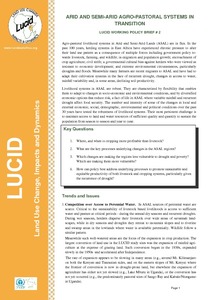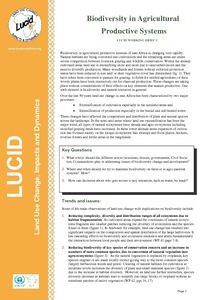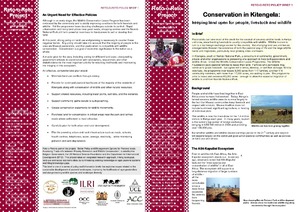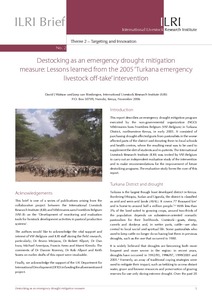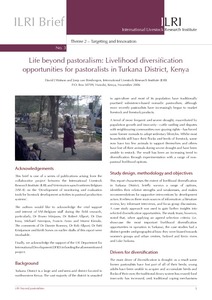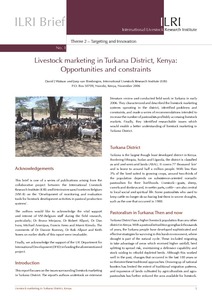Adoption of small ruminants’ fattening package in agropastoral areas, Mieso Wereda, Eastern Oromia
Many studies were conducted to identify determinants of adoption of crop base technologies and practices and improved seeds, and while few studies concerned on evaluation of extension services in terms of the clients’ need and interest or adoption of livestock technologies in agropastoral and pastoral context In fact, livestock extension services in general in developing countries are less prioritized and thus livestock based technology services are rarely extended Common livestock technologies which are promoted to livestock raisers are focused on feed, veterinary services, and improved ma

